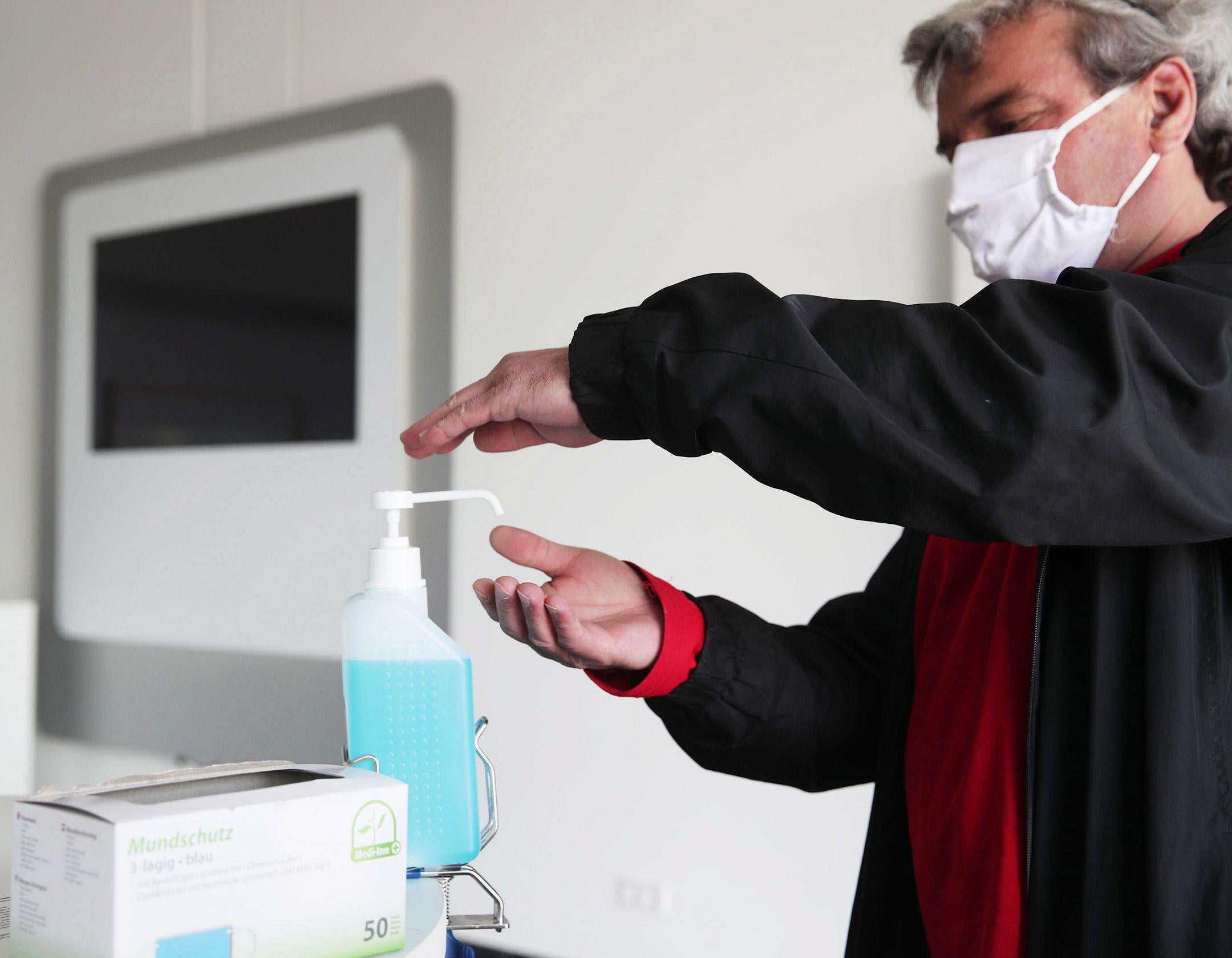Your support helps us to tell the story
From reproductive rights to climate change to Big Tech, The Independent is on the ground when the story is developing. Whether it's investigating the financials of Elon Musk's pro-Trump PAC or producing our latest documentary, 'The A Word', which shines a light on the American women fighting for reproductive rights, we know how important it is to parse out the facts from the messaging.
At such a critical moment in US history, we need reporters on the ground. Your donation allows us to keep sending journalists to speak to both sides of the story.
The Independent is trusted by Americans across the entire political spectrum. And unlike many other quality news outlets, we choose not to lock Americans out of our reporting and analysis with paywalls. We believe quality journalism should be available to everyone, paid for by those who can afford it.
Your support makes all the difference.A scientist has warned that overuse of alcohol-based hand sanitising gel could lead to certain bacteria adapting to survive the product and could create new superbugs that could threaten public health.
Andrew Kemp, head of Scientific Advisory Board on the British Institute of Cleaning Science, said it has not yet been proven that alcohol-based hand sanitising gels could kill the virus that causes Covid-19 on skin.
But an over-reliance on the disinfecting product could mean certain bugs will learn how to survive them and instead thrive on residual sugars and proteins on a person’s hands.
Instead, he said there should be more emphasis on washing hands with soap and water, which the World Health Organisation also recognises as the most effective way to protect oneself against infection.
According to the WHO, people should only use alcohol-based hand gels if they do not have immediate access to soap and water.
Mr Kemp, whose research has been published in the American Journal of Biomedical Science and Research, told The Daily Express that hand gels should “only be used as a last resort” or as a temporary measure if soap and water are not available”.
He was quoted as saying: “Even if [hand gels] did kill 99.9 per cent of all bacteria, there can be more than a million bacteria on your hands at any one time, leaving 10,000 alive after sanitisation. These will be in a residue of sugar and protein.
“Recent research shows the surviving bugs which are not killed by alcohol gels are themselves highly dangerous pathogens and may increase in numbers.
“This means our routine use of help could ultimately cause us more harm than good,” he added.
Hand sanitising gel is now widely available for the public to use in shops, restaurants, train stations and other venues in a bid to keep hands clean as the coronavirus pandemic continues to infect people throughout the world.
But Mr Kemp said overusing the gels may create “multi disinfectant-resistant bacteria alongside our antibiotic drug-resistant bacteria”, warning that it could lead to a “potentially Armageddon scenario”.
“Not only are we increasing the risk of these problems across the globe by overusing hand gels, we may also not be doing anything against the spread of Covid-19.
“It seems pointless spending billions on antibiotics, if the resistance to them comes from poor use of chemical disinfectants and hand sanitisers.”
Mr Kemp’s concerns are backed by Winston Morgan, a lecturer in Toxicology and Clinical Biochemistry at the University of East London.
Writing in The Conversation in April, Mr Morgan said an increase in antimicrobial-resistant bacteria caused by the overuse of hand sanitiser could “put a greater strain on our already struggling healthcare systems” and even lead to further deaths.
Some bacterial organisms can change or mutate after being exposed to an antimicrobial, which include antibiotic, antiprotozoal, antiviral and antifungal medications. This means the organisms can adapt to withstand the medicines designed to kill them, and become more difficult to get rid of.
“Our attempts to protect ourselves from Covid-19 may also be creating an environment where even more antimicrobial-resistant microorganisms can emerge,” he wrote.

Join our commenting forum
Join thought-provoking conversations, follow other Independent readers and see their replies
Comments